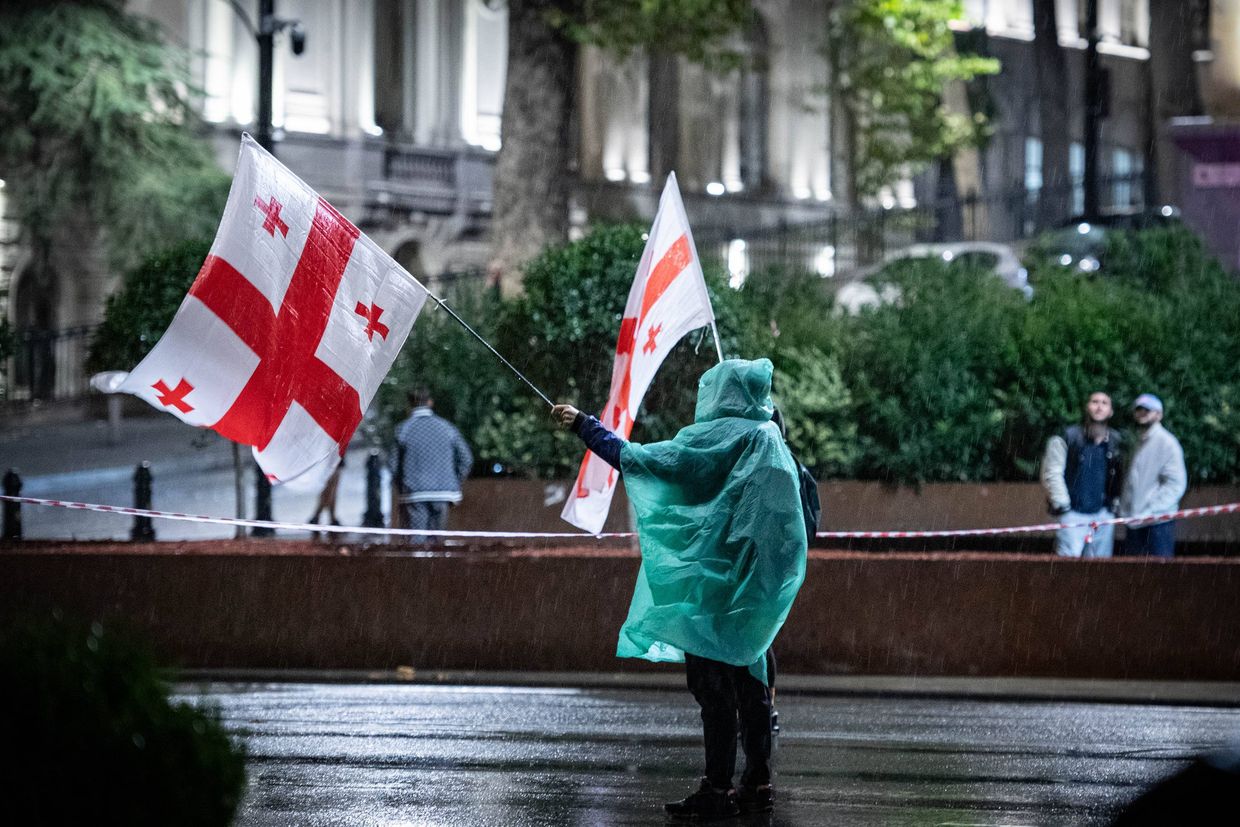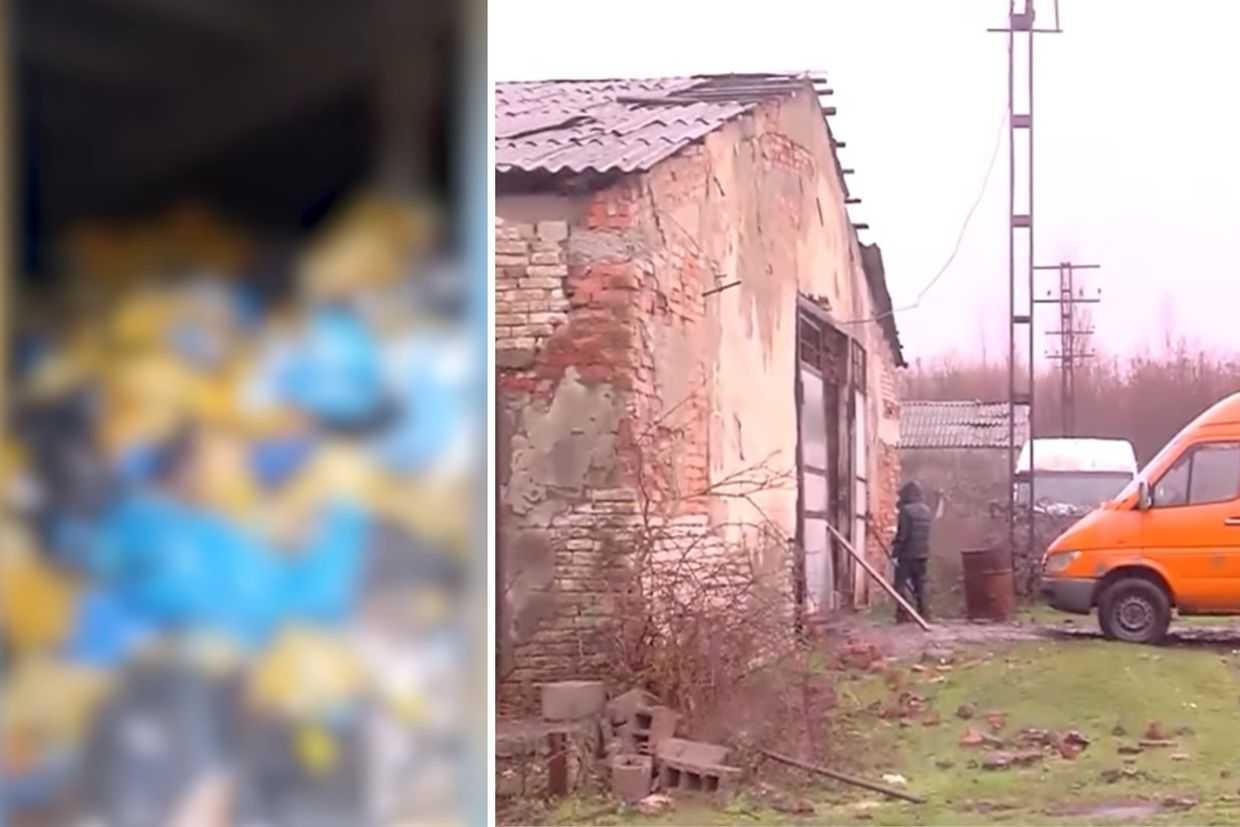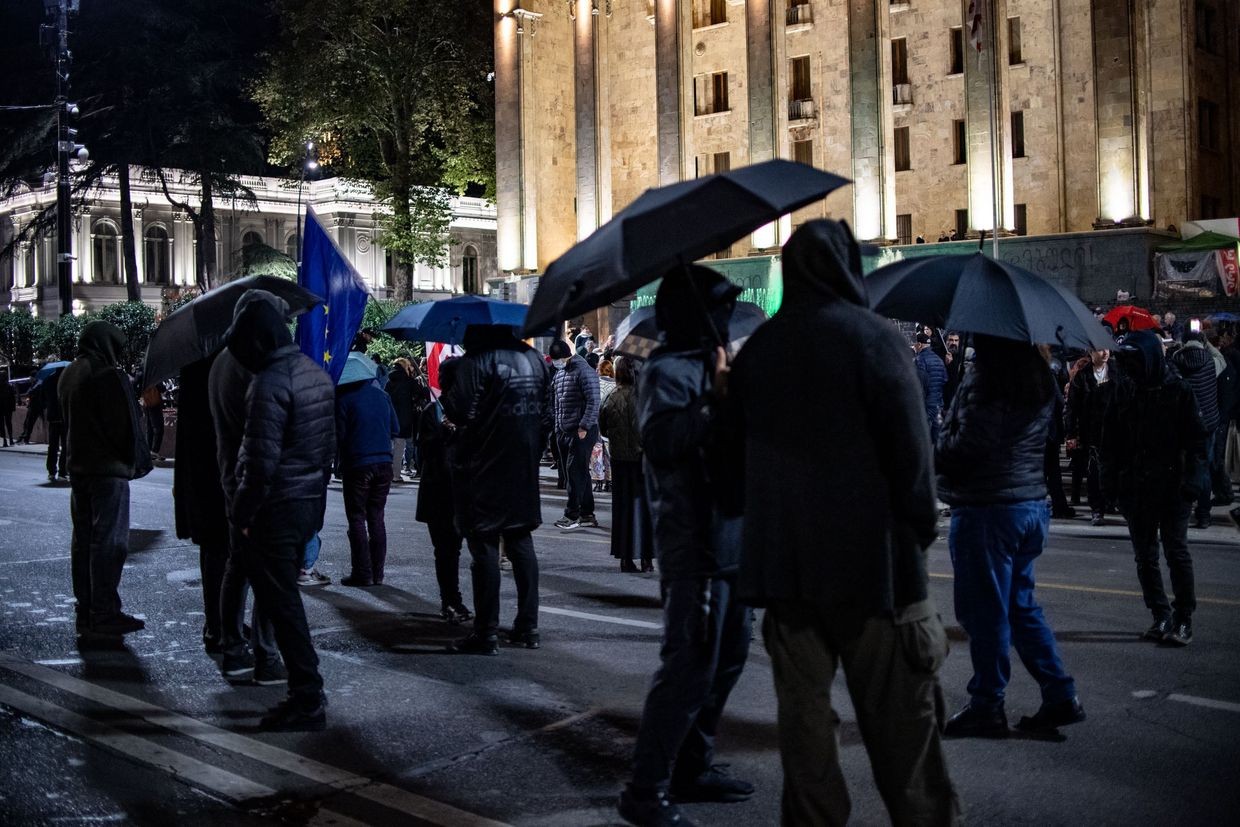
Protesters in Tbilisi have vowed to continue to block the city’s central Rustaveli Avenue, despite the authorities ramping up arrests under new tightened protest laws.
The parliament, controlled by the ruling Georgian Dream party and its satellites, rushed through new legislative amendments on 16 October, replacing administrative fines with imprisonment for several protest-related actions, including road blocking and wearing face coverings during rallies.
‘When the adoption of this bill was announced, it was clear to me that a new wave of repression had begun’, activist Mariam Mekantsishvili told OC Media.
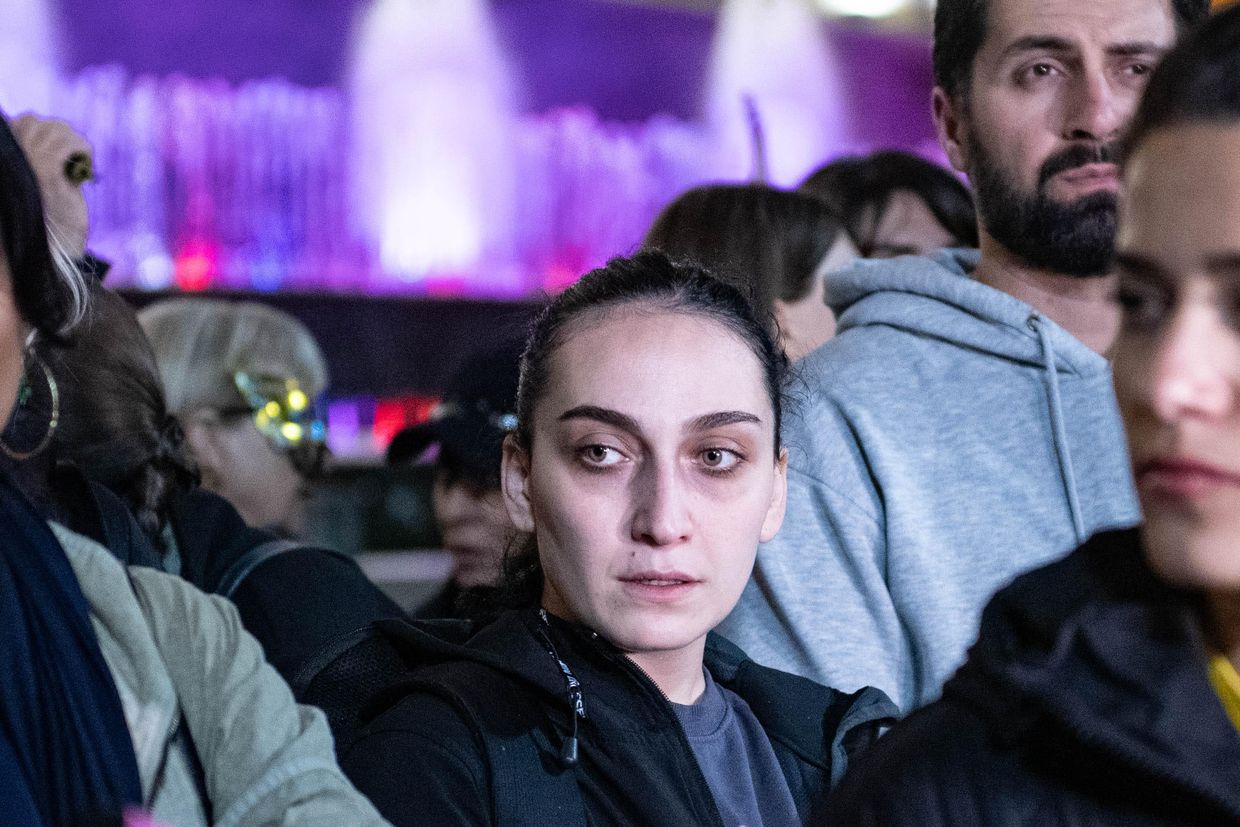
Protesters have been blocking the road in front of parliament daily since 28 November 2024, when the government announced it was ‘postponing’ the country’s EU application.
Since then, the government has repeatedly tried to suppress the protests — first through brutal police violence, and later with road-blocking fines that increased from ₾500 ($180) to ₾5,000 ($1,800) at the end of 2024. When protests continued, the ruling party decided to cancel the fines altogether and introduce imprisonments for first offences.
The consequences are far more severe for repeat offences: while the first-time penalty for blocking roads or covering one’s face is up to 15 days’ imprisonment, a second offence is punishable under criminal law by up to one year, and subsequent offences by up to two years.
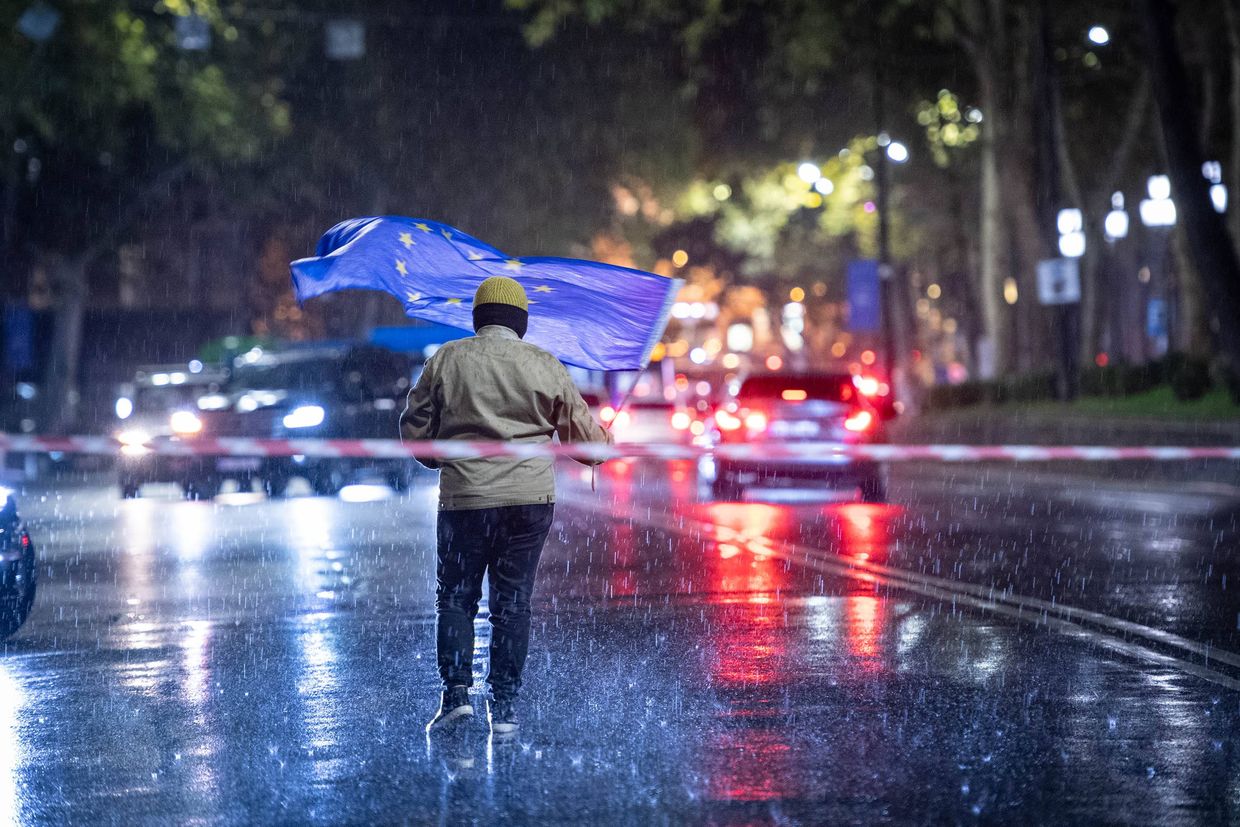
‘They realised that systematically issuing fines would not help them achieve the result they wanted, namely to reduce the momentum or resistance’, Mekantsishvili said.
‘That is why they decided to arrest anyone who fights for the freedom of expression or stands against them’, she added.
The law was soon followed by enforcement, with the Interior Ministry announcing 26 detentions in total over the past three days alone, in addition to the 13 detained on Sunday. The court has already handed many of those detained days-long sentences.
Yet despite the intensified pressure, the central avenue continues to be blocked by protesters every night: from 16 October to 21 October, there was not a single evening when demonstrators did not block the street, despite police warnings.
‘You must always resist illegality and injustice and never accept it’, another protester, Tamar Giorgadze, told OC Media while commenting on the new restrictions.
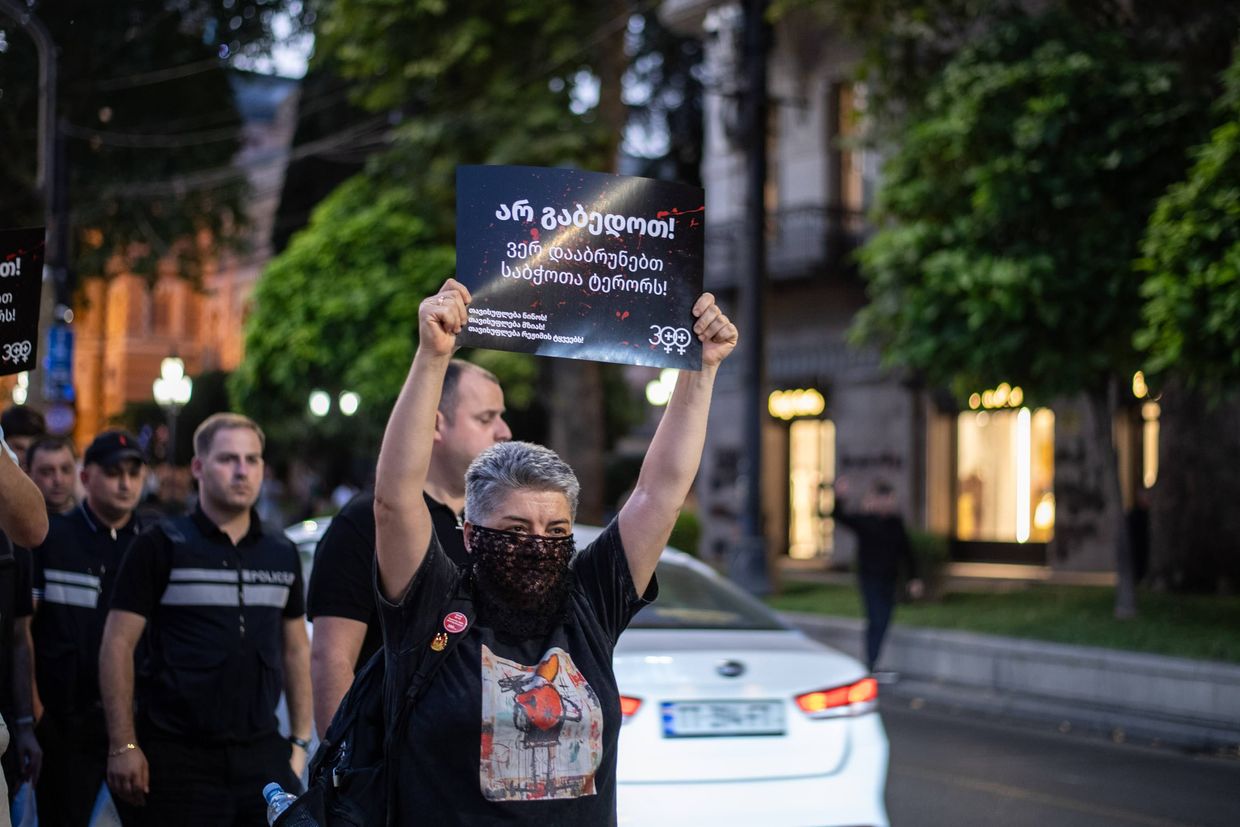
‘I don’t care at all. The Kremlin is imposing rules of enslavement on us, which we can either accept or reject. We [reject]’, Giga Lemonjava, a member of the opposition Droa party, said live on the opposition-leaning TV Formula while standing on Rustaveli Avenue.
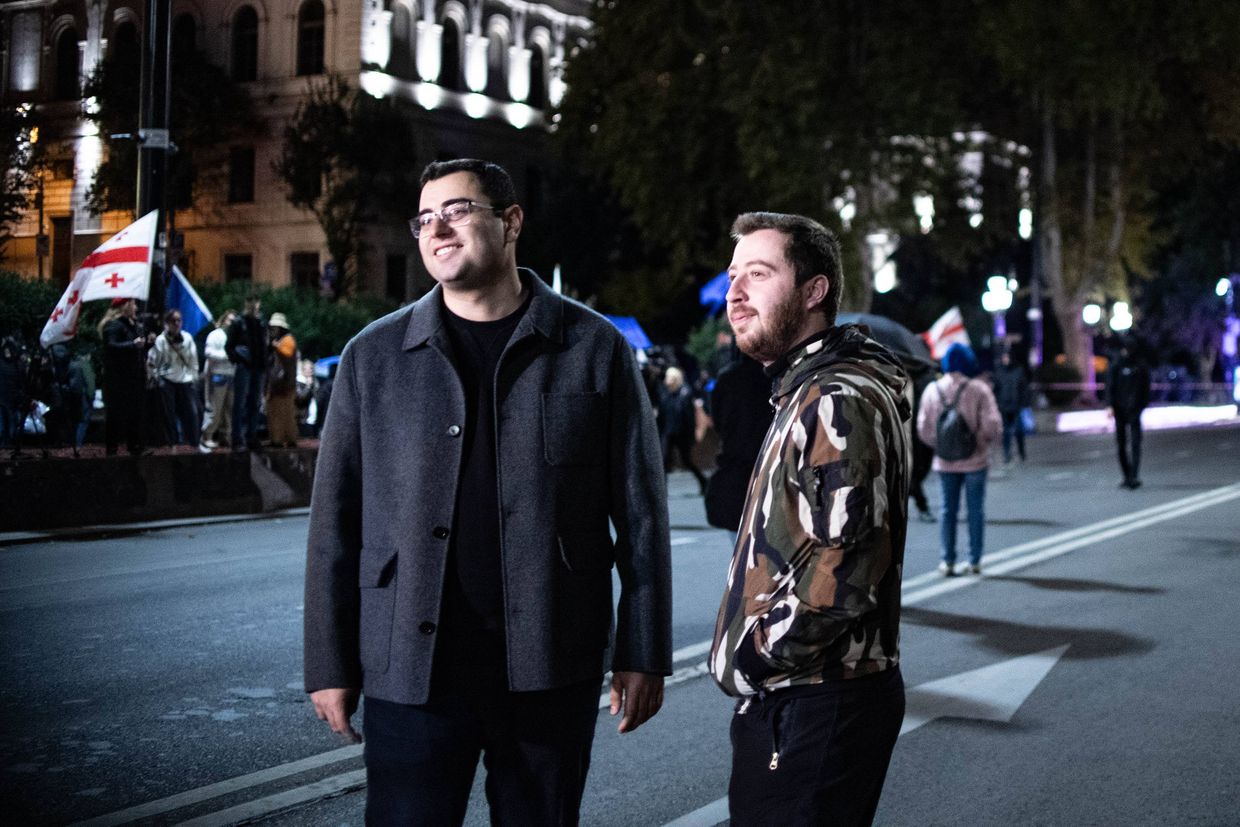
Lemonjava’s comment reflected the view of many opponents of the ruling party, who accuse it of steering the country into Russia’s orbit — that all of Georgian Dream’s repressive actions are being directed, or at least instructed, by Russia.
‘Even if it were not 15 days but 15 years, the rules imposed by the Kremlin would not work in Georgia’, Lemonjava noted.
‘Blocking the road should not be an end in itself’
Many of those who stand daily in front of parliament have already been affected by what critics describe as political persecution — either personally or through family members or friends who are imprisoned as protesters.
For example, Mekantsishvili was briefly detained after being accused of organising group actions that disrupted public order during the 4 October demonstration and clashes. She faces up to three years in prison.
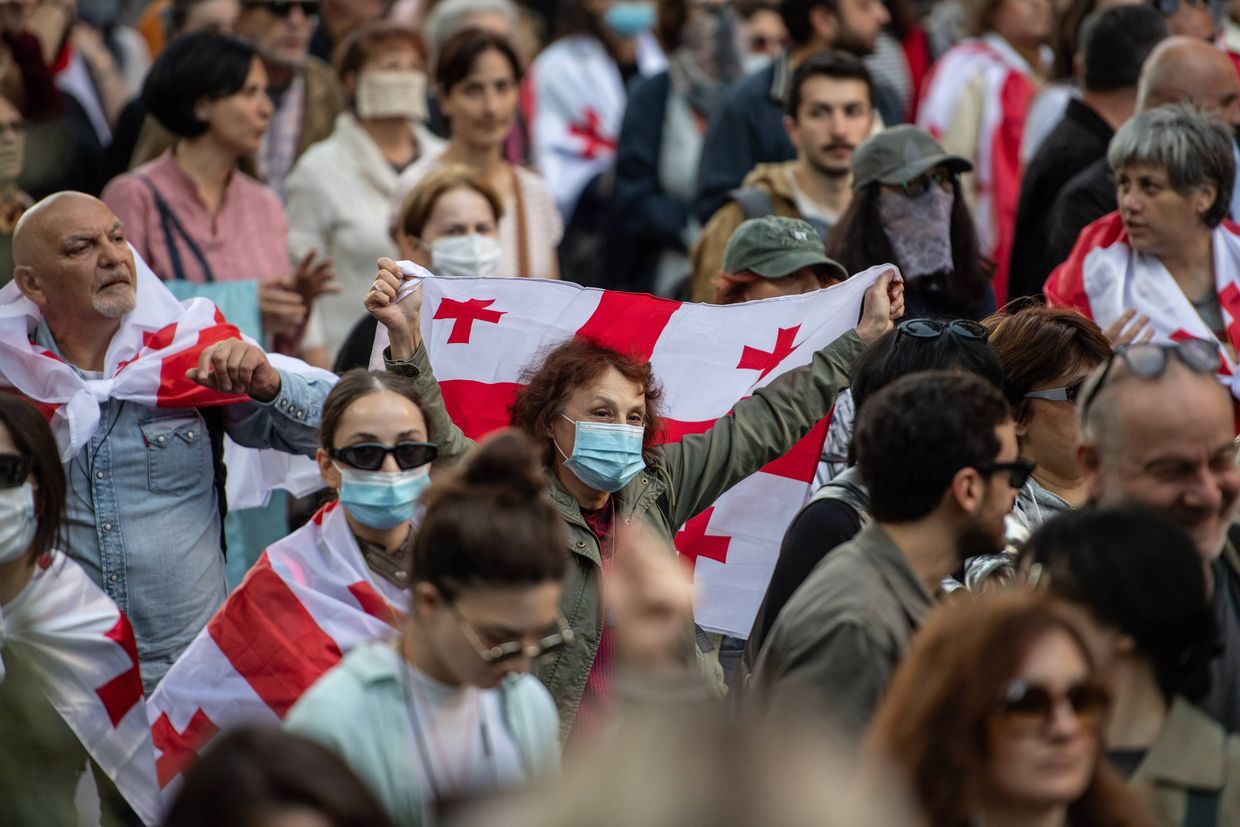
When she was released on bail on 19 October, Mekantsishvili returned to the protest site. As she noted, the forms of protest currently being restricted by Georgian Dream are protected under the Georgian Constitution.
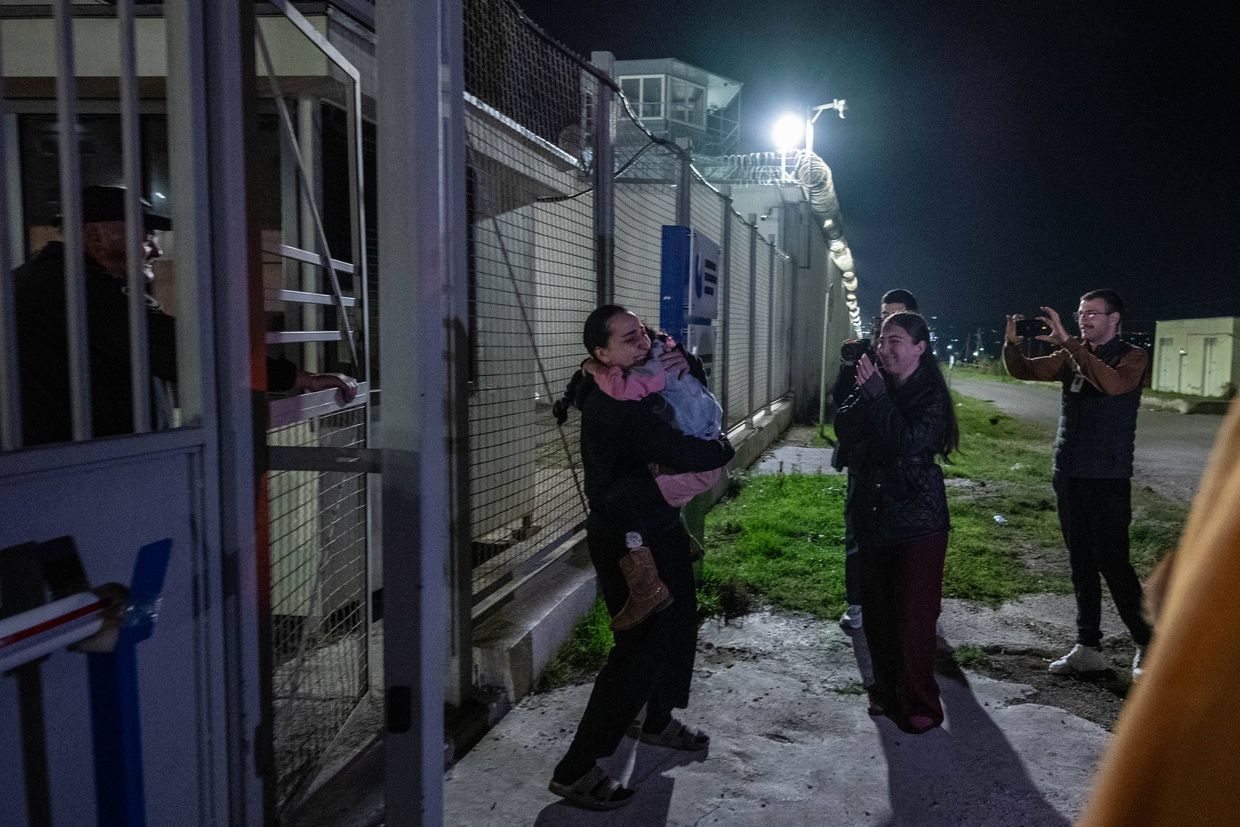
‘Resistance continues, disobedience continues, and the so-called laws of the so-called government can never be lawful or binding for me’, she added.
Sandro Mirtskhulava keeps protesting too. His cousin, 34-year-old Guram Mirtkhulava, was detained in the early phase of the ongoing demonstrations and sentenced in September to two years for allegedly participating in group actions that disrupted public order.
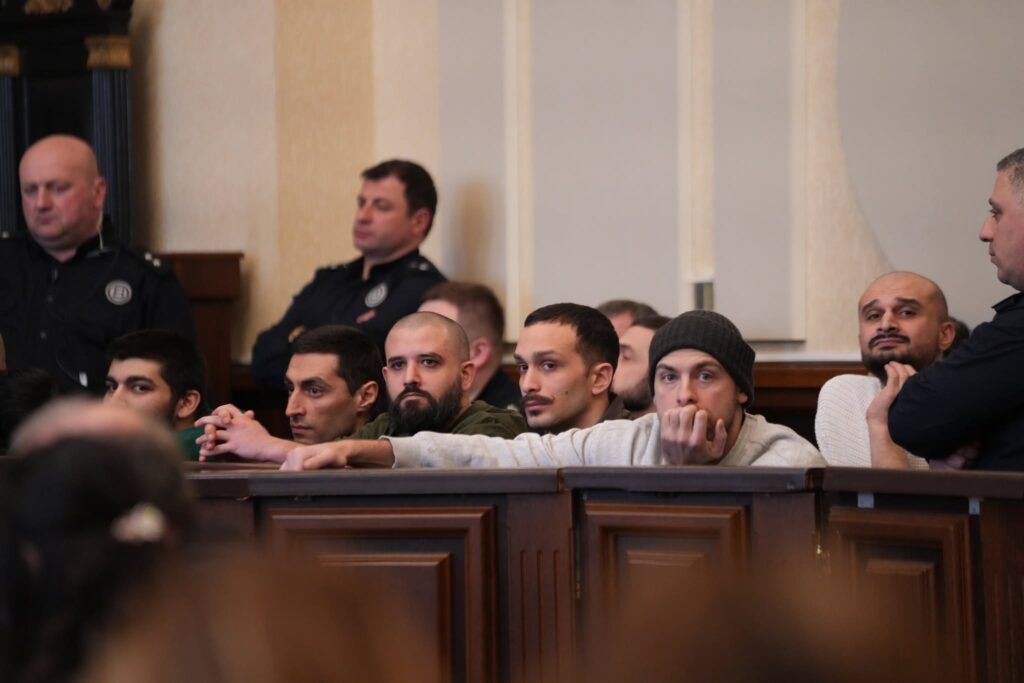
‘In an exceptionally freedom-loving nation like Georgia, neo-Bolshevik repressive laws only strengthen civil resistance’, he told OC Media in a written comment.
Mirtskhulava says the new amendments have had ‘no impact’ on him, though he also emphasised that ‘emotional individualism should not become the driving force’ of the protest movement, hinting at the need to carefully weigh the risks.
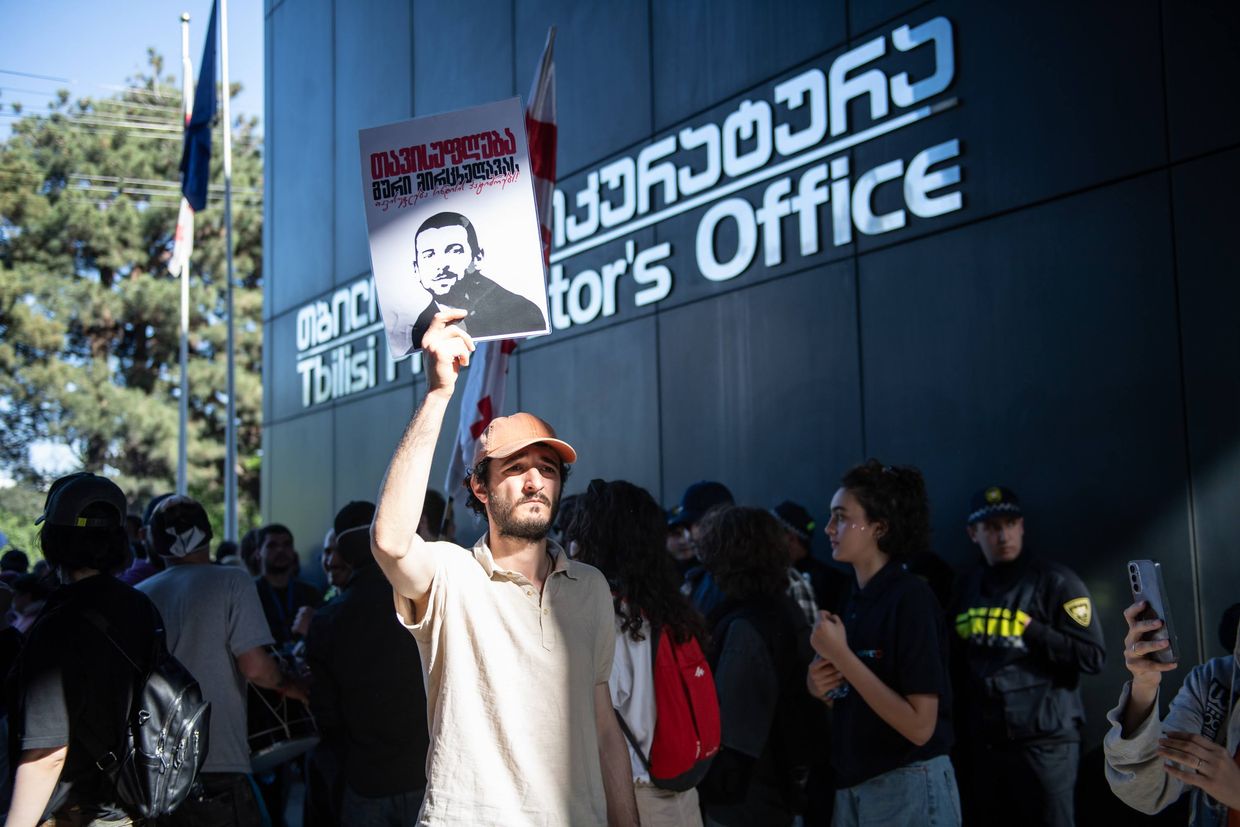
‘Blocking the road should not be an end in itself’, he said, adding that:
‘So today we can’t all block the road? That’s fine. The protest continues. Taking risks should be worth it during collective actions — especially when, in terms of numbers, we’re still not that many among those who show up daily’.
Mirtskhulava emphasised the need for the protest movement to bring together ‘as many people as possible’ in regular demonstrations so that participants feel ‘as safe as possible’.
‘And then the road will be blocked too’, he said.
The hunt for medical masks
Typically, police do not detain demonstrators on the protest site. Instead, they are identified, and arrests are carried out the following day — either at their homes or while the targeted individuals are out in public.
However, one trend has become noticeable since the new legislation came into effect: officers stopping people near the protest site — mainly around the Liberty Square metro station — for ‘identification’ purposes.
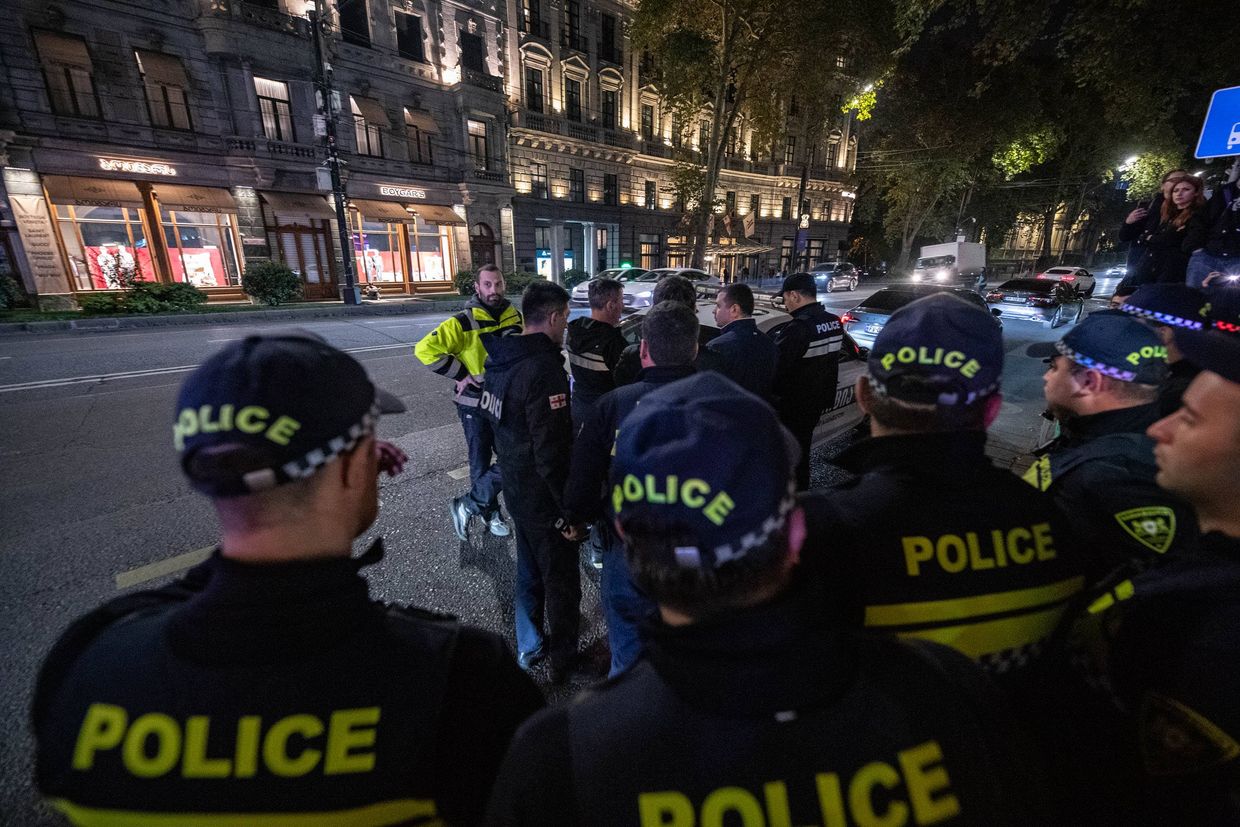
Several individuals who were walking from the direction of parliament toward the metro have been stopped simply for having medical masks with them. According to local media, the police have filed reports in at least some cases, sometimes sealing the masks as alleged evidence of face covering.
In one case that occurred on Tuesday evening, a young woman wearing a medical mask was stopped by police near the metro. She left after convincing the officers that she was wearing the mask due to dental issues. The woman said she had not been at the protest at all, but was actually returning from a k-pop concert.
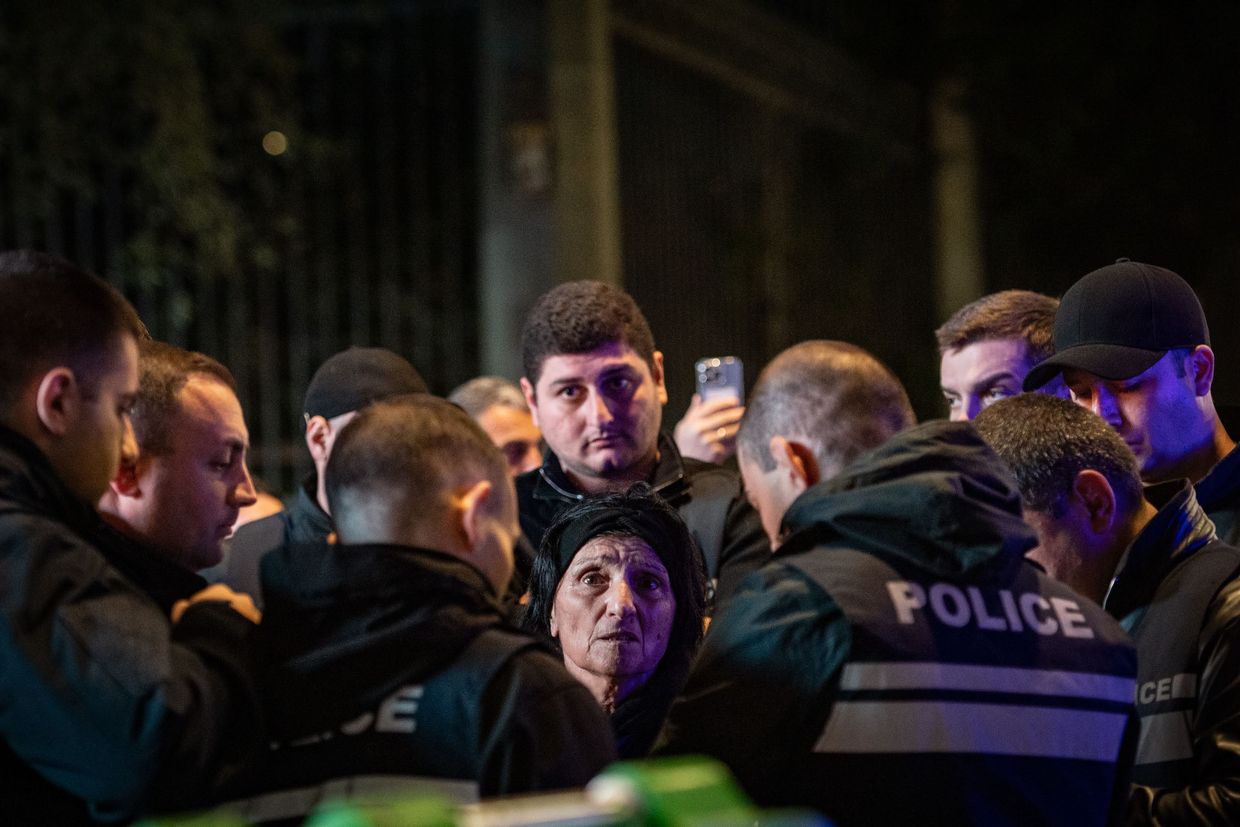
Earlier, on Sunday, police stopped Aza Chilachava, a 70-year-old active participant in anti-government protests and an internally displaced person from Abkhazia, at the same location for having a mask with her. On Wednesday, the court issued her a verbal warning.
‘What are you talking about?! I can’t wait for it to get dark so I can go out again’, she told a journalist who asked whether she planned to return to the protest.
